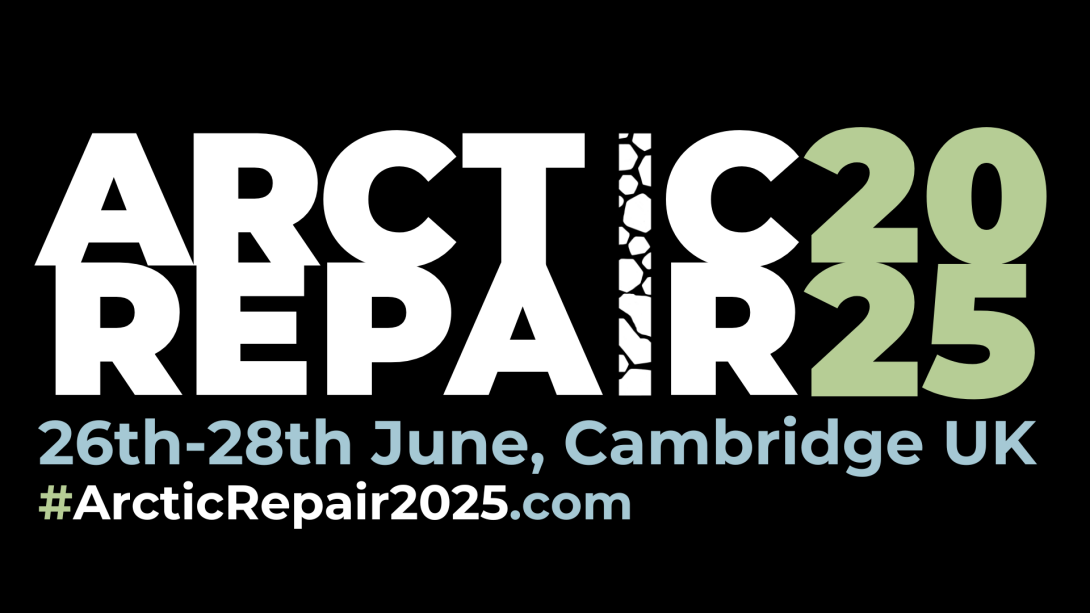
What does Arctic Repair 2025 mean to you?

Arctic Repair 2025 is a new conference with a focus on potential solutions to protect this region from the worst effects of climate change. Why?
As the World Meteorological Organisation reported just last week, the Arctic is warming 3.5 times faster than the rest of the world - that puts it at 2.4C higher than the recent average. The resulting loss of sea ice has major consequences for people living in the region, including their security and livelihoods, as well as for the wider ecosystem of the Arctic.
Moreover, the bright sea ice is replaced by dark water that absorbs sunlight, furthering increasing the warming effect. This has consequences for the whole world.
What happens in the Arctic doesn’t stay in the Arctic.
The speakers at Arctic Repair are coming from all over the globe. Faatupu Simeti, from Tuvalu’s Department of Climate Change and Disaster, will open our conference with an anecdotal account of climate change effects. Shortly after, we’ll hear from Julius Mihkkal Eriksen Lindi of the Arctic and Environmental Unit of the Saami Council, to hear his perspective on the urgency to find solutions.
We won’t stop there - with these accounts of the pressing impacts of climate change, there is an ever more pressing need to discuss potential solutions and the impacts that they could have.
To get us thinking, some of our speakers shared why they’re joining the conversation.
“The Arctic is on the verge of dangerous, irreversible changes that threaten the entire global society,” says Anton Keskinen from Operaatio Arktis. “It’s our duty to come together, explore solutions, and develop a clear path forward.”
Gareth Davies, professor on EU Law at the Vrije Universiteit Amsterdam, says:
Emissions reductions may not be enough to save the Arctic. There’s an urgent need to investigate other, complementary, techniques to protect and repair the environment. But opposition to such techniques is fierce, on varying grounds, from the practical to the ideological. It’s important to understand where this opposition comes from, in order to prevent a destructive polarization of opinions and build the consensus that is needed for effective environmental policy.
Listening, understanding, and coming together are common motivations for our speakers. “Through events like Arctic Repair 2025,” says Andrea Ceccolini of Real Ice, “we can make sure that as a community we speak with one voice, and that we adopt best practices when operating in the Arctic region.”
Rafe Pomerance emphasises the timeliness of such conversations: “I would like to see the conference embrace the establishment of an upper limit to sea level rise and as a result adding a second metric to the global climate negotiations. The attention to Greenland at this time offers a huge chance to put sea level rise and the fate of the Arctic front and centre globally.”
What’s in it for you? Well, hope, we hope.
"I'm excited for Arctic Repair as a space to reflect on what climate interventions could mean for justice, accountability, and lived experience,” says Trisha Patel of the African Climate and Development Initiative, University of Cape Town. “As an early-career researcher, I'm coming with curiosity and a hope to learn, question, and connect.”
“We all know the Arctic is collapsing at dangerous rates,” says Clara Botto from The Alliance for Just Deliberation on Solar Geoengineering, “but we don't talk enough about how to stop it from collapsing even further. I'm glad the Arctic Repair conference will be an opportunity to discuss this while we still have time to prevent irreversible damages.”
Sign up for Arctic Repair 2025 by 11th June to join the conversation and see first-hand the possibilities in front of us for real change. It’s time to talk about climate change solutions - we’d love to do that with you.

